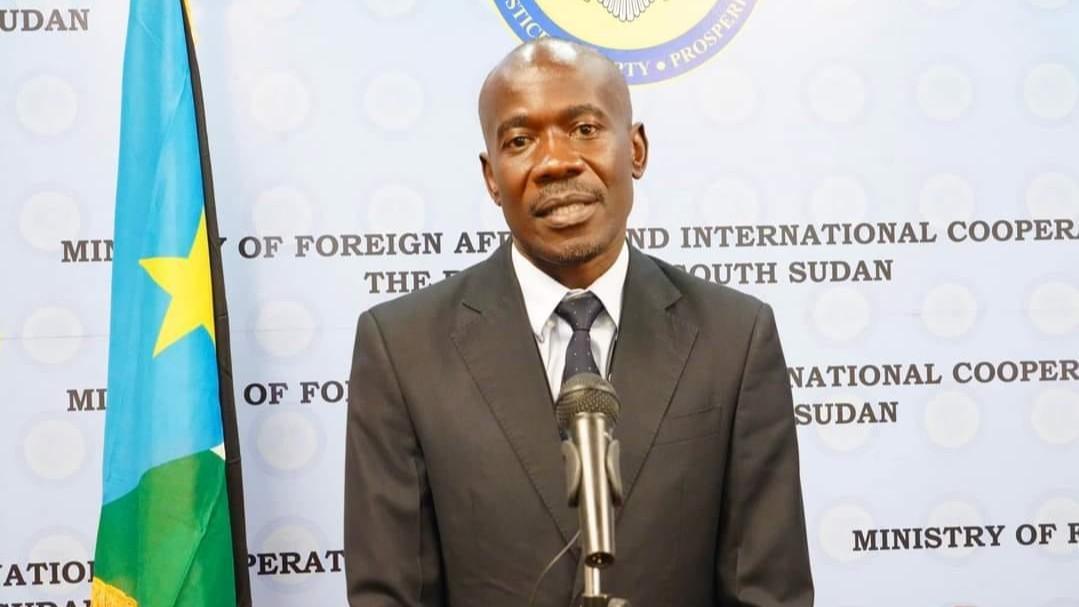Africa-Press – South-Sudan. With some 32,000 people already in catastrophic hunger conditions in Upper Nile, more than three times the previous projection, the World Food Programme (WFP) has warned of severe famine looming in Nasir and Ulang, the state’s two counties ravaged by armed clashes.
The United Nations agency said the population in the two counties were at risk of famine in the coming months, as conflict escalates in the state, destroying homes, disrupting livelihoods, and impeding the delivery of humanitarian aid.
In a statement shared with Sudans Post, WFP said the latest Integrated Food Security Phase Classification shows a deterioration in food and nutrition conditions in areas of South Sudan hit by fighting in the last few months. In Upper Nile state, people in 11 of the 13 counties are now facing emergency levels of hunger.
“Of extreme concern are Nasir and Ulang counties, where people are deemed to be at-risk of famine, in the worst-case scenario. These areas have faced intense clashes and aerial bombardments that began in March, leading to large-scale displacement,” read the statement.
The agency noted that other parts of the country that have been spared from the conflict have seen improvements, with food security classification shifting from emergency to crisis phases – linked in some areas to better crop production and in others to sustained humanitarian interventions.
However, the humanitarian organization warned that some 7.7 million people, about 57 per cent of the population, continue to face acute food insecurity, and persistent pockets of catastrophic hunger remain prevalent across the country.
The last time famine was confirmed in South Sudan was in 2017. But Meshack Malo, the Country Representative of the Food and Agriculture Organization of the United Nations in South Sudan, warned that without sustainable peace, a repeat of the worst-case scenario is possible.
“South Sudan cannot afford to sink into conflict at this point. It will plunge already vulnerable communities into severe food insecurity, leading to widespread hunger as farmers will be prevented from working on their land. Improvement from IPC Phase 4 to IPC Phase 3, in ten counties, is a clear testament to the dividends of peace,” he said.
The country representative noted that humanitarian access in the conflict-affected areas remains severely constrained, leaving vulnerable communities without vital support during the lean season, amid ongoing conflict and displacement.
The report also found that 66 per cent (1.04 million people) of Upper Nile state’s population are now facing Crisis, Emergency, or Catastrophic levels of hunger.
“Once again, we are seeing the devastating impact conflict has on food security in South Sudan,” said Mary-Ellen McGroarty, Country Director and Representative for the United Nations World Food Programme (WFP) in South Sudan.
“Conflict doesn’t just destroy homes and livelihoods, it tears communities apart, cuts off access to markets, and sends food prices spiralling upward. Long-term peace is essential, but right now, it is critical our teams can access and safely distribute food to families caught in conflict in Upper Nile, to bring them back from the brink and prevent famine,” added McGroarty.
Children were also caught up in the web of crisis, with malnutrition surging amidst a cholera outbreak, with three additional counties in Upper Nile and Unity states reaching the most critical levels of malnutrition classification.
“These latest projections place a further 200,000 young children at high risk of malnutrition. The ongoing challenges with access in some of the most affected areas and health and nutrition site closures reduce the chances of early intervention and treatment,” said Noala Skinner, UNICEF’s country representative in South Sudan.
“In addition, the cholera outbreak has added to an already difficult situation, putting young lives in a precarious fight for survival. Now more than ever, we need continuity and scale-up of services to prevent and treat malnutrition,” she added.
In late May, the Uganda People’s Defence Forces (UPDF), at the request of South Sudanese authorities, conducted large-scale humanitarian airdrops, delivering hundreds of metric tons of emergency food aid to famine-stricken areas in Upper Nile State, specifically targeting Ulang and Nasir Counties.
These operations aimed to address severe food insecurity caused by ongoing conflict and displacement in the region. While the Governor of Upper Nile State, James Oang Chuol, praised these airdrops for providing much-needed relief to conflict-affected communities, WFP and UNICEF report that additional aid is required to avert a catastrophe.
For More News And Analysis About South-Sudan Follow Africa-Press






